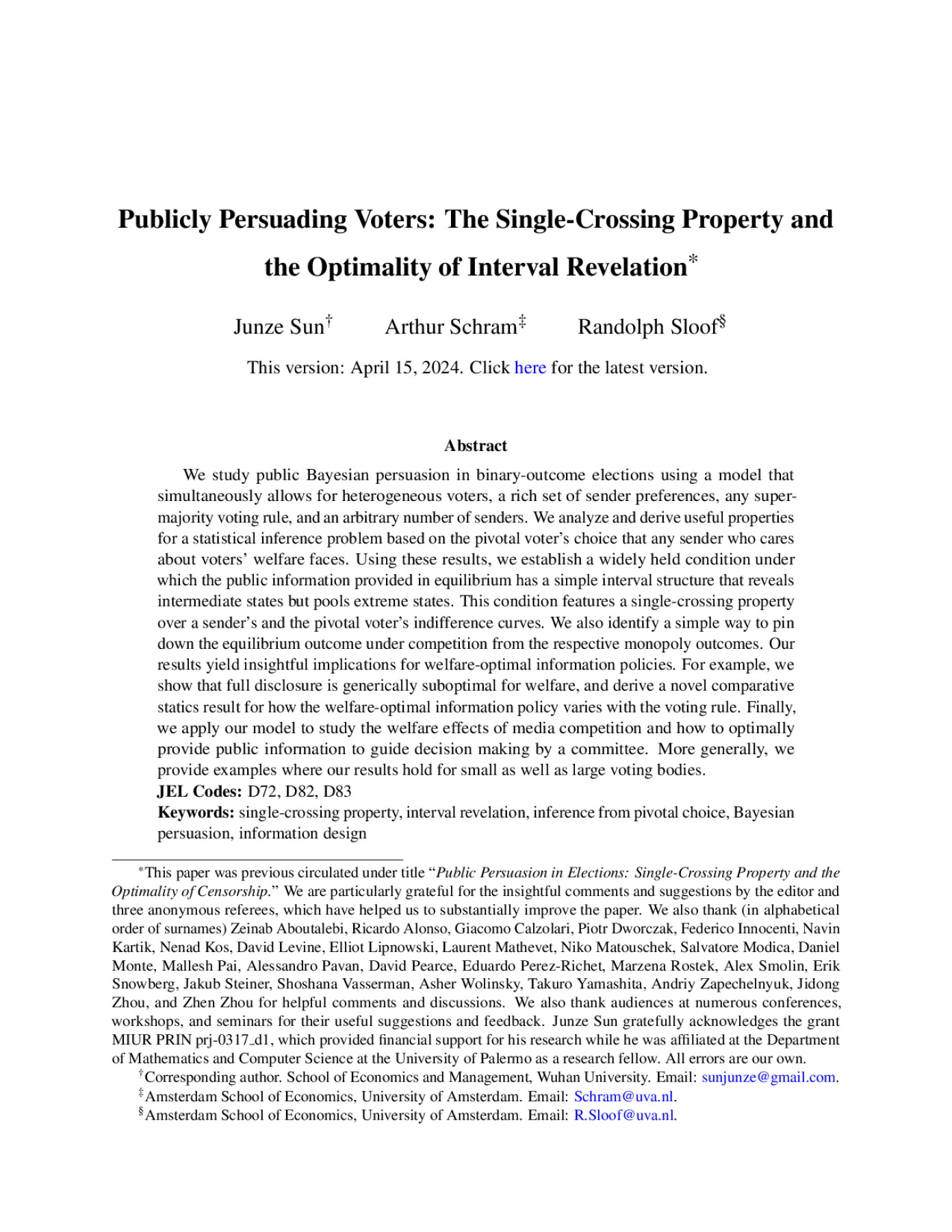2024 Asia Meeting, Hangzhou, China: June, 2024
Publicly Persuading Voters: The Single-Crossing Property and the Optimality of Interval Revelation
Junze Sun, Arthur Schram, Randolph Sloof
We study public Bayesian persuasion in binary-outcome elections using a model that simultaneously allows for heterogeneous voters, a rich set of sender preferences, any super-majority voting rule, and an arbitrary number of senders. We analyze and derive useful properties for a statistical inference problem based on the pivotal voter's choice that any sender who cares about voters' welfare faces. Using these results, we establish a widely held condition under which the public information provided in equilibrium has a simple interval structure that reveals intermediate states but pools extreme states. This condition features a single-crossing property over a sender's and the pivotal voter's indifference curves. We also identify a simple way to pin down the equilibrium outcome under competition from the respective monopoly outcomes. Our results yield insightful implications for welfare-optimal information policies. For example, we show that full disclosure is generically suboptimal for welfare, and derive a novel comparative statics result for how the welfare-optimal information policy varies with the voting rule. Finally, we apply our model to study the welfare effects of media competition and how to optimally provide public information to guide decision making by a committee. More generally, we provide examples where our results hold for small as well as large voting bodies.
Preview


























































































